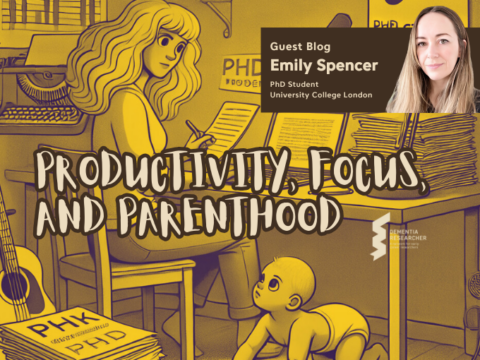
Aspiring clinical psychologists are aflutter with questions- how to get on training, what the role is like, and truly- is it worth it? A few months ago I made a discovery, albeit quite late, that provides some answers: most cities have a pre-training or assistant psychologists’ chapter or group, with a BPS compiled list which, whilst requiring updating, can help you locate your group through online sleuthing.
My local Manchester Assistant Psychologist Group (MAPG) was recently resurrected and, despite the name, isn’t exclusive, welcoming an audience of support workers, research assistants, postgraduates, anyone on route to becoming a psychologist. Joining made me privy to the ongoing dialogue on job and volunteering opportunities, literature and resources, events and the talks held on the last Friday of every month. I attended once before, intimidated by the prospect of meeting more accomplished graduates and self aware about the glaring lack of BME representation (join fellow BMEs!). However, these hesitations didn’t interfere with interest in the seminar styled talk on gender identity, delivered by two recently qualified clinical psychologists from the Leeds Gender Identity Developmental Service.
Every talk aspires to invite such speakers, practising or research psychologists, but for July we had three trainees from the University of Manchester, two with prior clinical focused experience while the third had worked in research. We had a panel discussion covering both obvious and not so aspects of the training.
Assistant Psychologist versus Trainee
The trainees felt placements during the doctorate involved “overwhelmingly less responsibility”, as you’re provided with more guidelines on risk and supervision and are protected, with introductory periods for each placement.
They also said assistant psychologists have a larger work load but the trade off is assimilating with more ease into the workplace, having time to familiarise yourselves with the environment and staff. Being on placement could leave you feeling like an outsider, showing up only 3 days a week and by the time you grasp your footing and meaningful relationships form it’s off to the next placement.
Either way, trainees were upfront- there is a work-life balance struggle.
The Course
There was variance on whether trainees got on training after one attempt or two with several after seven or eight. Once accepted there was a high retention rate on the Manchester program. Courses were delivered by experts within the respective areas and were exam intensive, with most papers offering vignettes requiring formulation, operating on a pass, borderline pass, fail system.
Trainees said the course feels like it “is pulling you in different directions with a lot of simultaneous juggling” which is why trainees demonstrate qualities beyond empathy such as resilience, balance, acknowledging struggle and accepting gaps in their knowledge. This led to considering overachieving personalities that drive us to this particular course, which are not realistic once accepted. The trainees said everyone eventually has to shed this personality to contend with being just “good enough” at times.
Despite this they were quick to point out that there is a constantly available breadth of support, from professors to your own tutor, who address any array of problems, both academic and personal.
Placements
The course incorporates the BPS Competency Framework which requires training that will allow for a competent understanding and practice of CBT, including 3rd wave, and another form of therapy. Of these, Manchester offers neuropsychology, systemic and psycho-dynamic.

Placements are on adults, children, learning disabilities, and a choice between older adults, neuroscience and health. Third year is the opportunity for specialist placements, determined through a choices form which will address your current training gaps. You can make requests and even though there is no guarantee they account for personal reasons. One trainee explained how experiences with her grandparent deterred her from working with older adults and she changed her specialist choice with support from the faculty.
All core placements are within the NHS, however, for specialist placements you may work in private practice, though this may be dependent on your initiative in locating and liaising with one. Trainees were firm about at least one of placement having a “killer commute”, especially since placements for Manchester extend across the North West, often in competition with Leeds.
Research
As the DClinPsy is training you to be a scientist practitioner research is a crucial component, with some individuals choosing to permanently reside in academia and continue doing research after graduating. A significant proportion are apt to do both. Therefore, Manchester ensures baseline training from the onset for every fresh faced trainee with no previous research experience.
The course has a thesis component, which involves a systematic literature review and an individual project. The Manchester system has existing projects, though these can be limited in subject matter and are dependent on the experts available- currently, Manchester is heavily psychosis focused. You may be able to design a project from scratch but it must be more than a hatchling idea, preferably a full-fledged proposal with a clear cut direction.
Projects are picked in first year, allowing time for the literature review and applying for ethics, and data collection commonly occurs in second year.
 Application and Interview
Application and Interview
There’s standard application prep, such as asking for honest opinions on drafts and setting up mock interviews with colleagues and supervisors. One trainee suggested getting in touch with potential interviewers for advice on approaching the process. They insisted we focus on what separates us from the thousands of other graduates since universities will be looking to form more diverse cohorts, as the majority are overwhelmingly white, female and middle class. Finding your niche element, whether it be in your personality, background or the nature of your previous work or studies, facilitates this.
Manchester interviews follow standard questions but trainees agreed that other institutions may have changed there’s or have no script. There were some common sense tips, such as being professional and mindful, but the most important was understanding that we “don’t need to know the answer to everything”. Universities are not out to find trained and taught practitioners but are scoping for “the clay they’d want to mould”. This means not pretending to know what you don’t, with most successful acceptances coming from honestly answering “I don’t know” or saying you will look it up.
The Tough Talk
The most uncomfortable part was the trainees acknowledging that though they come from a place of privilege they couldn’t emphasise enough that the DClinPsy isn’t for everyone, especially considering the ambivalence regarding funding for trainees inn future. This fed into musing over what options exist beyond the doctorate (Plan B), as well as re-examining why we want it in the first place. Anxious laughter corroborated that no one does this for financial gain, but it couldn’t just be about providing therapy, which other careers also allow for. There has to be an understanding of the multidisciplinary nature of the position which also encompasses research, supervision and policy.
We also considered that the DClinPsy could be our pathway- but not now. One of the trainees waited years to apply because as a fresh graduate she didn’t feel prepared enough. It was less about gaining relevant work experience, more about achieving confidence, that made her pace herself. There was a general consensus that many of us didn’t feel ready as yet to apply for training and entering the rigorous mouse maze.
In the end…
…the day was bittersweet, some information revving me up, some of it causing me to falter in my decisions briefly. I only felt better because I was surrounded by equally anxious faces, all in the same boat.
Author
Nadine Mirza graduated from the University of Manchester in 2015 with a BSc (Hons) in Psychology and followed this with an MPhil in Primary Care Mental Health. She is now working toward a PhD in Mental Health, with the Centre for Primary Care at the University of Manchester, funded by the MRC. Her research focuses on the assessment of dementia and cognitive impairment within ethnic minority groups and improving their access and diagnosis of dementia in memory services. Alongside her studies, Nadine is working as an Assistant Psychologist with Just Psychology CIC and as a graduate teaching assistant with the School of Psychological Sciences at the university.
You can follow Nadine on Twitter Follow @thealmostpsych
Nadine also has her own blog which you can find at https://thealmostpsychologist.wordpress.com/

 Print This Post
Print This Post






[…] *This post is now featured on the National Institute for Health Research, Dementia Researcher website! […]